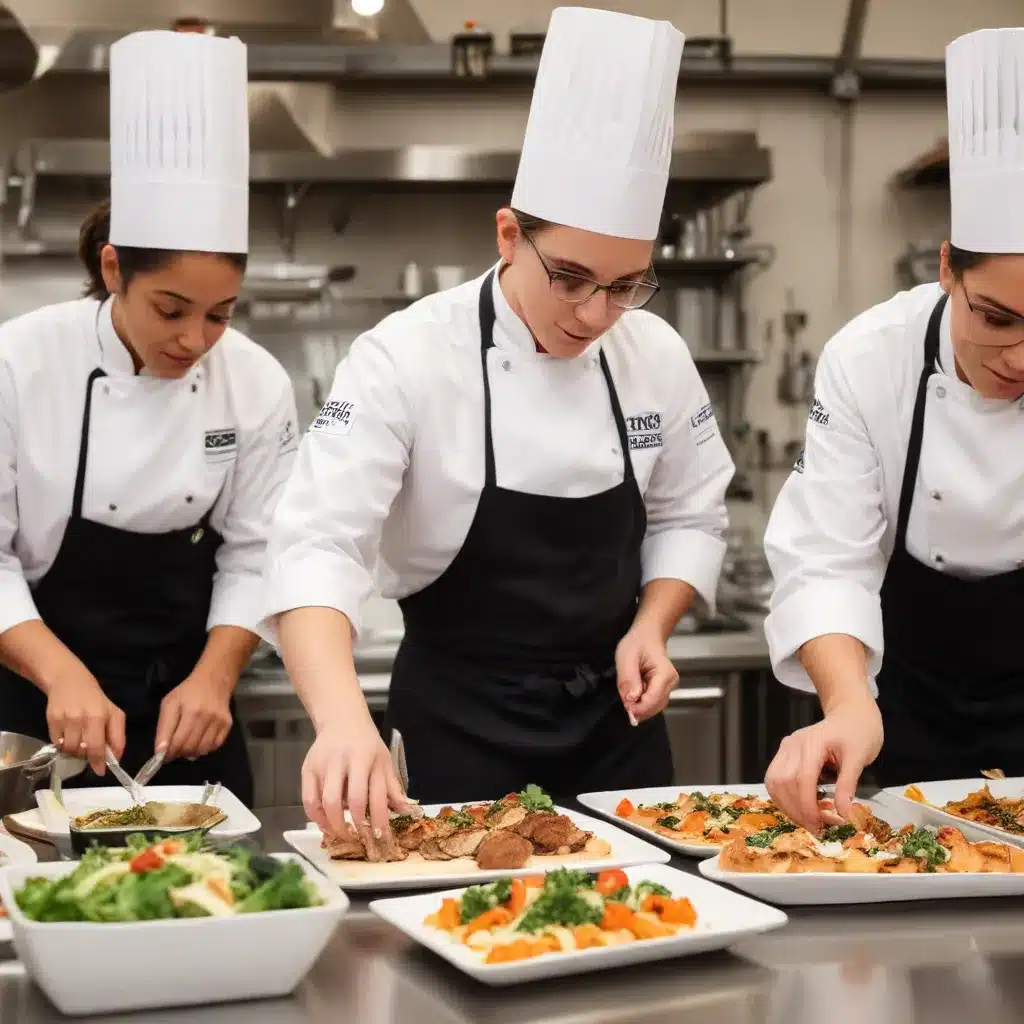
The Transformative Power of Hands-On Culinary Learning
In the ever-evolving landscape of culinary education, the focus has shifted from mere recipe memorization to a deeper understanding of the science behind the culinary arts. Today’s aspiring chefs and home cooks are craving an educational experience that not only teaches them technical skills but also empowers them with a comprehensive grasp of the scientific principles that govern the kitchen. This holistic approach, known as culinary science, is revolutionizing the way we train the next generation of culinary professionals and passionate home cooks.
At the heart of this movement is the recognition that cooking is a multifaceted discipline, blending creativity, technical precision, and a keen understanding of the underlying chemical and physical processes that transform ingredients into mouthwatering masterpieces. By embracing this scientific mindset, culinary educators are empowering students to become true culinary artists, capable of not only executing flawless dishes but also innovating and problem-solving in the kitchen.
Bridging the Gap between Theory and Practice
One organization leading the charge in this culinary education revolution is STEAM Chefs, a pioneering initiative that harnesses the power of hands-on cooking to inspire the next generation of culinary innovators. STEAM Chefs, which stands for Science, Technology, Engineering, Art, and Math, has developed a comprehensive curriculum that seamlessly integrates these disciplines into the culinary classroom.
“Our overarching goal is to empower students with the scientific knowledge and practical skills needed to succeed in the kitchen, classroom, and beyond,” explains the program’s founder, Vayu Maini Rekdal. “We believe that by approaching culinary education through the lens of STEAM, we can foster a deeper understanding of the principles that govern the art of cooking, ultimately empowering our students to become creative, versatile, and confident culinarians.”
The STEAM Chefs curriculum, available as free, open-access resources for educators, covers a wide range of topics, from the science of flavor and the chemistry of cooking to the engineering behind kitchen tools and the mathematics of recipe scaling. Through hands-on activities, interactive demonstrations, and real-world applications, students are able to seamlessly connect the theoretical concepts they learn in the classroom to the practical realities of the kitchen.
Cultivating Culinary Confidence and Creativity
The impact of this innovative approach to culinary education can be seen in the success stories of programs like WHISK at San José State University. WHISK, which stands for Wellness and Health Inspired Student Kitchens, provides undergraduate nutrition students with the opportunity to hone their culinary skills and share their knowledge with the broader campus community.
“As WHISK Ambassadors, we have the chance to apply the scientific principles we’ve learned in the classroom to real-world cooking demonstrations and educational initiatives,” shares Emilia Gomez, a senior nutrition student. “Through this hands-on experience, we’re not only building our own culinary confidence, but we’re also empowering our peers to develop healthier relationships with food.”
The WHISK program, which includes virtual cooking classes, tabling events, and collaborative projects with other campus organizations, exemplifies the power of experiential learning in culinary education. By providing students with the chance to plan, execute, and evaluate their own culinary events, WHISK helps them develop a multifaceted skill set that encompasses everything from event planning and community engagement to effective communication and problem-solving.
“Although our event participants may not see the behind-the-scenes work that goes into these initiatives, WHISK is able to provide experiences that help nutrition students learn new skills that can be applied to future jobs,” adds Giselle Garcia, another WHISK Ambassador. “In my opinion, WHISK is a small golden gem in the Nutrition department, looking to help students inside and outside of the department develop healthy relationships with food.”
Empowering the Next Generation of Culinary Leaders
The success of programs like STEAM Chefs and WHISK highlights the growing demand for culinary education that goes beyond the traditional recipe-focused approach. Today’s aspiring chefs and home cooks are seeking a more holistic, science-based understanding of the culinary arts, one that empowers them to become creative problem-solvers and innovative leaders in the kitchen.
By embracing this scientific approach to culinary education, we can cultivate a new generation of culinary professionals and passionate home cooks who are not only skilled in the technical aspects of cooking but also possess a deep comprehension of the underlying principles that govern the kitchen. This unique blend of practical expertise and scientific knowledge will equip them to tackle the ever-evolving challenges of the culinary landscape, from developing sustainable food systems to crafting unique flavor profiles that delight the senses.
As the Dipping Spoon Foundation aptly states, “Food is a mechanism to learn, teach, understand, share and not just eat.” By empowering the next generation with a science-based culinary education, we can inspire them to become culinary innovators, leaders, and advocates, shaping the future of the culinary industry and, ultimately, transforming the way the world experiences and appreciates the art of cooking.
Conclusion: Cultivating a Culinary Renaissance
The future of culinary education lies in the seamless integration of science and hands-on practice, enabling aspiring chefs and home cooks to develop a deep understanding of the underlying principles that govern the kitchen. Through innovative programs like STEAM Chefs and WHISK, we can empower the next generation of culinary professionals and passionate home cooks to become creative problem-solvers, innovative leaders, and advocates for sustainable food systems.
By embracing this scientific approach to culinary education, we can cultivate a new era of culinary excellence, where the art of cooking is elevated to a true science. As we continue to explore the endless possibilities of the culinary arts, we can inspire the next generation to push the boundaries of what’s possible in the kitchen, ultimately transforming the way the world experiences and appreciates the wonders of food.


